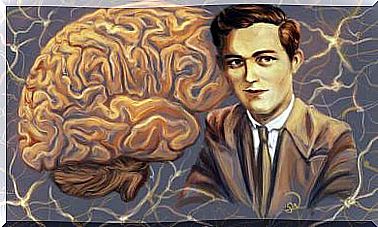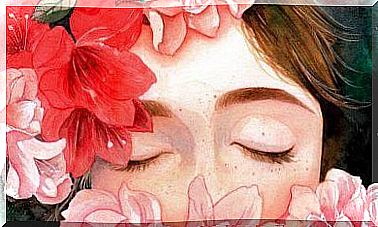The Cognitive Reserve: A Step In The Evolution Of The Brain

The cognitive reserve is a concept that has emerged in neuropsychology, and it refers to how the brain’s structures handle a loss of their abilities or how it copes with other negative changes. In other words, the cognitive reserve is the brain’s ability to respond to disease, old age or the breakdown of the brain. This ability allows the brain to compensate to some extent for damage.
A high cognitive reserve can sometimes cause the brain to function normally after an illness. It also keeps the brain fully active, even when it is naturally broken down due to old age. As you can see, it is a very important ability that one should nurture and maintain.
The cognitive reserve begins to form as the brain develops in the womb. It is known that the first experiences in a person’s life are crucial. They will largely determine how intelligence will develop.

It is believed that genetic factors affect the creation of the cognitive reserve, but this is not the whole truth. There are ways to stimulate the brain to increase this capacity throughout life. In fact, it can also be increased after the brain damage has occurred.
Intellectual activities and training have been shown to have a positive impact on the cognitive reserve. Reading, mental games, learning a language, dancing, sports and intellectually stimulating activities can be especially helpful.

When you have a good cognitive reserve, the brain will be able to create new connections between the nerve cells and replace those that have been damaged. This process is much easier for those who have previously performed any of these activities, or where the person has previously been characterized by any of the following:
- A higher cultural level. By cultural level we mean studies, reading and intellectual activities. A higher level protects the brain from certain cognitive degradation, such as that which occurs at old age.
- Social relationships. Science has proven that those people who have support from a good social circle and who frequently interact with them are 38% less likely to develop dementia.
- Physical training. This promotes blood circulation in the brain and protects it from oxidative stress and other age-related degradation factors.
- Mental training. A factor that increases the cognitive reserve. It includes activities such as playing a musical instrument, practicing intellectual hobbies, etc.
A healthy diet also helps maintain a strong brain. Smoking, alcohol and psychoactive substances should be avoided.
David Snowdon, a professor of neurology at the University of Kentucky, conducted an impressive study in 1986 that included 678 Catholic nuns from the United States. It was a very homogeneous group: they ate the same food, lived in the same environment and performed similar activities.
He monitored their cognitive reserves for 17 years. During this period, they were regularly tested and data on genetics, intellect and psychology were collected. Everyone agreed that their brains would be studied after death to supplement the information from the experiment.

Sister Bernadette’s case was the most interesting. She died at the age of 85 and the researchers studied her brain after her death. It was discovered that she was suffering from Alzheimer’s but that she did not show any symptoms when she was alive. The researchers concluded that her cognitive reserve compensated for the physiological differences.
The researchers also discovered another interesting fact. The nuns who had a larger vocabulary showed less cognitive decline over the years. The vocabulary in turn came from the fact that they had read a lot during childhood.
This experiment is one of the main pieces of evidence that intellectual, social and physical exercise delays the natural deterioration of our cognitive functions.







